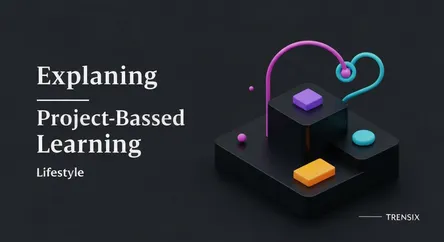Lifestyle
Explaining Project-Based Learning

Discover Project-Based Learning (PBL), a dynamic teaching method where students learn by tackling complex, real-world projects and challenges.
What is it?
Project-Based Learning (PBL) is a student-centered teaching method that involves a dynamic classroom approach. Instead of memorizing facts, students gain knowledge and skills by working for an extended period to investigate and respond to an authentic, engaging, and complex question, problem, or challenge. These projects are designed to mimic tasks found in the real world, requiring students to apply what they've learned in practical ways. The focus is on student inquiry, collaboration, and the creation of a public product or presentation for a real audience.
Why is it trending?
Educators and employers are increasingly recognizing that traditional learning models don't always equip students with essential 21st-century skills. PBL is trending because it directly addresses this gap by fostering critical thinking, creativity, collaboration, and communication. It promotes a deeper understanding of subjects by connecting learning to real-world issues, which increases student engagement and motivation. This hands-on approach is seen as a powerful alternative to rote memorization, preparing students for the complexities of modern careers and higher education.
How does it affect people?
For students, PBL can transform their educational experience. It fosters independence, improves problem-solving abilities, and enhances knowledge retention. By working on meaningful projects, students develop confidence and a sense of ownership over their learning. For educators, it shifts their role from a simple dispenser of information to a facilitator or coach. This change encourages a more collaborative classroom environment and allows teachers to guide students through the learning process, offering personalized support and fostering a love for inquiry and discovery that lasts a lifetime.